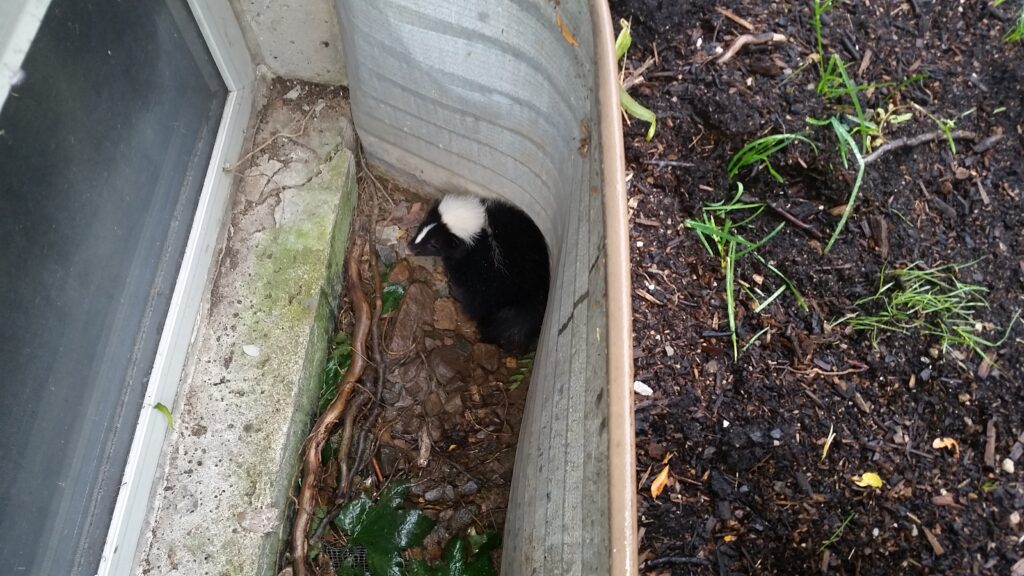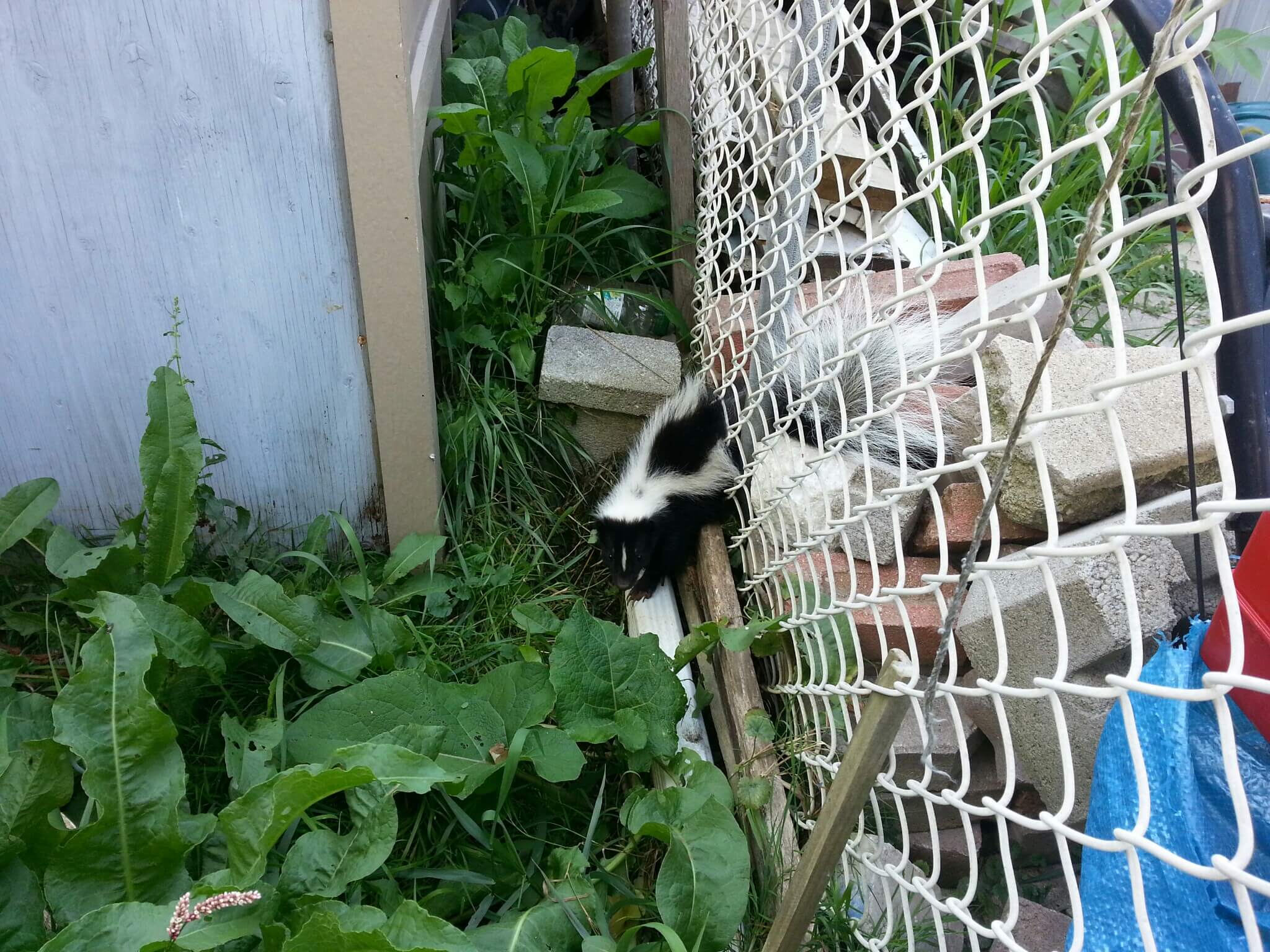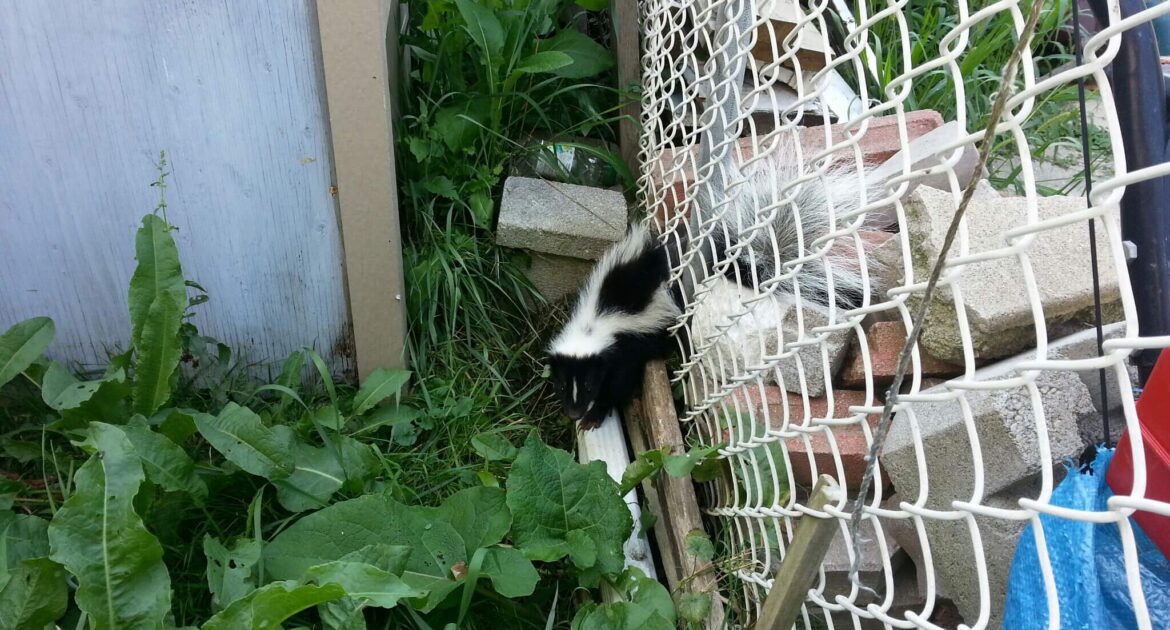Skunks are not agile climbers like other animals, raccoons and squirrels included. Skunks prefer to shuffle on the ground and seek shelter under human-made structures or by digging into the earth and creating a den. Because of a skunk’s self-defence mechanism and potential risk to human health, it is strongly advised homeowners seek the assistance of a professional and recognized wildlife removal.
The Motivation of Patio Season
The mating season for skunks is typically between February and March after they emerge from their dens from winter. With late winter and early spring breeding, the female species will often give birth sometime in May, coinciding with the beginning of patio season.
Like any other animal or species, a soon-to-be mother skunk wants to find proper shelter before giving birth. She needs a safe place to raise her little ones, typically between four and six kits in a litter. Under a deck, shed, or crawlspace provides adequate protection from the elements and offers cover and protection against wandering predators.
Additionally, suppose the animal finds an active backyard, a place with regular cookouts, gardens, etc. In that case, it will have a sustainable food supply throughout the remainder of its pregnancy and throughout the nurturing process of its young. Like any wild animal, there are ways to exclude the animal humanely, encouraging it to find shelter elsewhere.
Encouraging a Skunk Family To Move On

Skunks are nocturnal animals, sensitive to light with a preference for quiet. If you want to encourage a skunk to move on from your property, it’s important to always consider the health and safety of the animal above all else.
As a nocturnal animal, skunks are sensitive to light, especially since they do not have the best eyesight. You can try placing motion sensor lighting around or near the den entrance. The bright light might be enough to annoy the animal and encourage them to move on.
Skunks also do not like the sound of people; they consider the sound of voices somewhat threatening. You can try placing a radio near the den entrance and tuning to a talk station. If the animal feels threatened, she will likely gather her babies and move somewhere else.
While these tactics may be good at discouraging skunks from spending time in your yard, none of them are as effective as proper wildlife exclusion. At Skedaddle, we know the only way to truly prevent skunks from denning on your property is to remove them, and screen against future invasions. Our trench and screen skunk exclusion keeps your home and property safe in the long run, and prevents other wildlife from breaking in as well.
A Wildlife Control Service Is the Best Solution
If you believe you have a skunk den on your property, it is best to leave removal or exclusion to the professionals. While skunks are not particularly aggressive, they can spray, bite, and scratch when threatened.
Skedaddle Humane Wildlife Control employs wildlife experts familiar with all species. If you need assistance, contact a Skedaddle representative and schedule a property assessment to determine your wildlife problem and solution.




